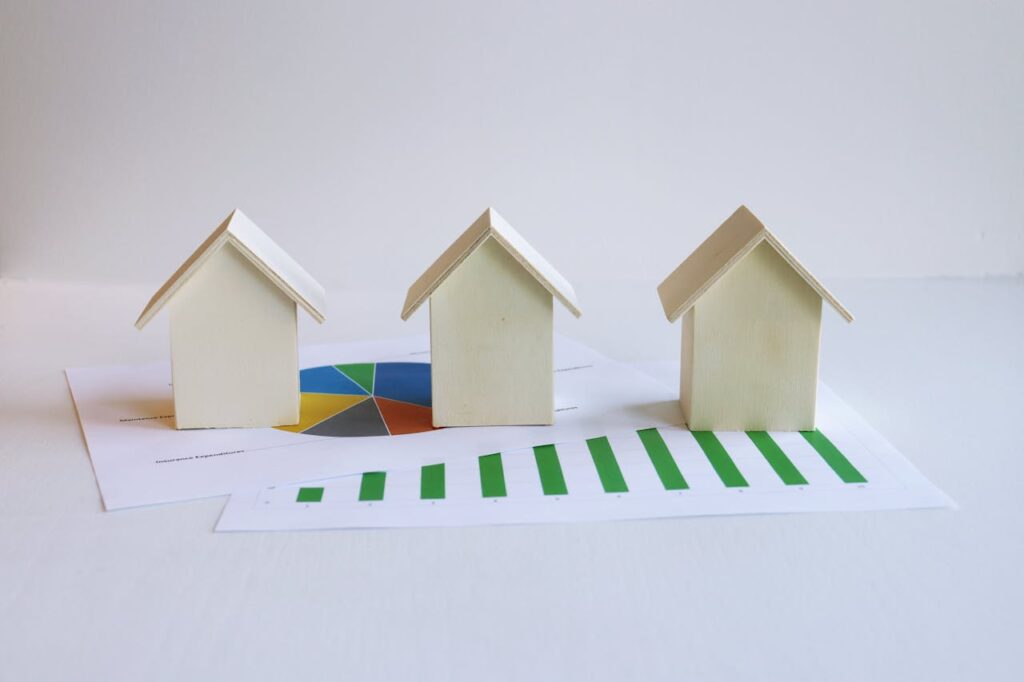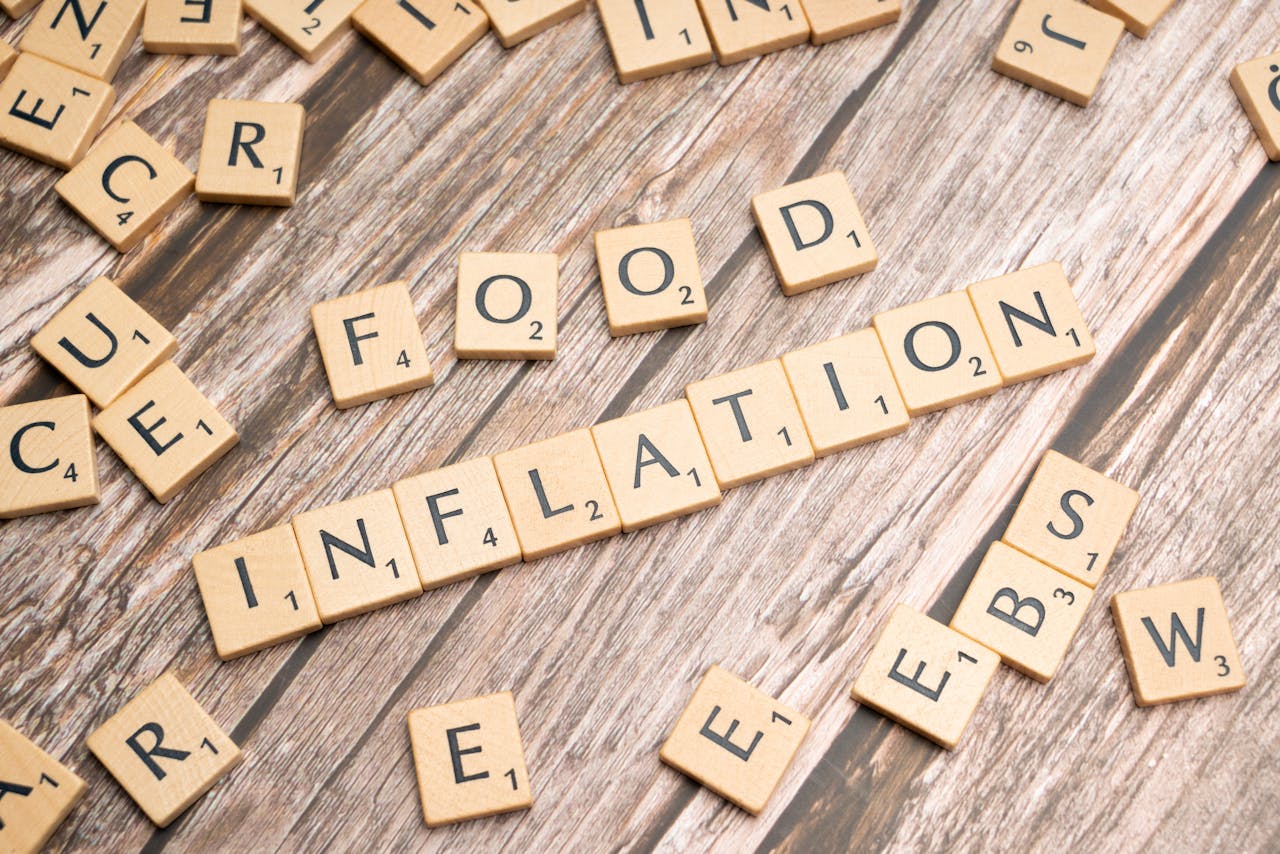The Connection between Inflation and Housing Prices
Economic changes in inflation levels affect all aspects of life through their impact on grocery prices and real estate costs.
The housing sector demonstrates exceptional sensitivity to inflationary effects because it tremendously affects people’s housing abilities as well as the financial health of the overall economy, thus creating a correlation between inflation and housing prices.
This blog investigates how inflation affects housing prices through analysis of driving factors alongside their effects on property buyers and sellers and real estate investors.
Understanding Inflation and Its Mechanisms
The rising costs of consumer products throughout time known as inflation diminishes the value of cash.
A growing economy tends to feature natural moderate inflation which benefits financial stability yet excessive inflation disrupts economic stability.
Federal Reserve along with other central banks uses interest rate adjustments to manage inflation through their monetary policies.
Inflation can be driven by two primary factors:
Demand-pull inflation: Supply fails to match the increasing product and service needs of consumers.
Cost-push inflation: Consumers bear the cost of increased production expenditures when organizations pass these costs upward.
Inflationary pressures impact fundamental real estate as well as all other economic sectors. Housing stands as a practical resource and fundamental need that shows heightened correlation between inflation and housing prices.
How Inflation Impacts Housing Prices
The relationship between inflation amounts and real estate prices shows various effects from diverse market and economic forces. Let’s break down the primary ways inflation affects housing prices:
a) Rising Costs of Construction and Materials
The cost rise of raw materials including lumber steel and concrete merges with rising labor expenses when the inflation level increases.
Construction expenses passed through to home developments increase total housing prices across the market.
The market demands stable profit margins push builders to raise residence costs when inflation rates become excessively high.
b) Decreased Purchasing Power
When inflation makes all prices rise through the roof households experience financial strains on their spending abilities.
Home buying affordability decreases when inflation weakens purchasing power particularly for markets that lack wage growth adequate to match inflationary pressure.
This situation reduces the number of potential homebuyers yet this reduction generally lasts only a short time.
c) Real Estate as an Inflation Hedge
Owners consider real estate an inflation-hedge during periods of rising prices.
When inflation rises real estate often generates more value while traditional assets such as cash and bonds reduce in worth. Hence real estate functions as an inflation-protection strategy.
Investor demand for housing properties fueled by the market perception of real estate foundation reinforces price growth in the housing market.
d) Interest Rates and Mortgage Costs
When central banks attempt to fight inflation through interest rate increases they make borrowing more expensive.
Mortgage rate increases push prospective buyers away from purchasing homes thus reducing market demand and curbing price appreciation.
The complex relationship between mortgage costs and housing market trends reveals that restricted market supply combined with persistent consumer interest functions as a counterforce against rising interest rates exclusive of foreseeable price drops.

Implications for Buyers, Sellers, and Investors
The relationship between inflation and housing real estate market values generates major impacts that touch every participant involved in this sector.
The effective way to manage inflation requires thorough knowledge of its significant outcomes.
a) For Buyers
When inflation computes high values the goal of house ownership becomes more difficult because prices rise simultaneously with mortgage rates.
To adapt, buyers may need to:
- Buyers need to readjust their property requirements to settle for properties that fit their budget.
- Homebuyers should obtain fixed-rate loans since they stabilize payments while defending against potential rate hikes.
- Potential buyers should examine markets with minimal price escalation while discovering newly developing residential areas as alternatives to traditional housing zones.
b) For Sellers
When prices rise sellers typically receive advantages because their property values rise.
Elevated interest rates pose difficulties for property sellers because they affect the number of qualified buyers who can access normal financing options.
To achieve the most profitable outcome at auction sellers should carefully choose their timing and establish realistic offer parameters.
c) For Investors
The value retention of real estate assets combined with rental potential makes property an excellent investment opportunity in times of rising inflation.
Investors should:
- Investors should concentrate on locations where demand is strong and supplies are scarce in order to achieve sustainable market expansion.
- Investors should expand their portfolio through residential and commercial and industrial properties as well as residential properties.
Follow macroeconomic indicators consisting of shifting interest rates together with government policy developments for their market impact evaluation.
Role of Government Policies in Mitigating Inflation’s Impact on Housing
This section evaluates government strategies and central banking interventions that stabilize housing markets by means of monetary policies and regulatory mechanisms with subsidies.
The analysis should evaluate new programs that enhance housing availability with measures for mortgage accessibility improvement.
Conclusion
Price inflation exists in an undeniable relationship with real estate values because construction costs escalate and demand patterns transform while real estate serves as an inflation protection asset.
In order to make smart decisions in the housing market buyers, sellers and investors need a clear understanding of the relationship between inflation and real estate values.
Companies operating in real estate can capitalize on rising inflation by purchasing homes before prices increase and selling their properties due to appreciation while also using real estate investments for wealth security.
Active engagement with housing market updates, together with precautionary investment choices allows participants to face inflation dynamics with enhanced assurance.

